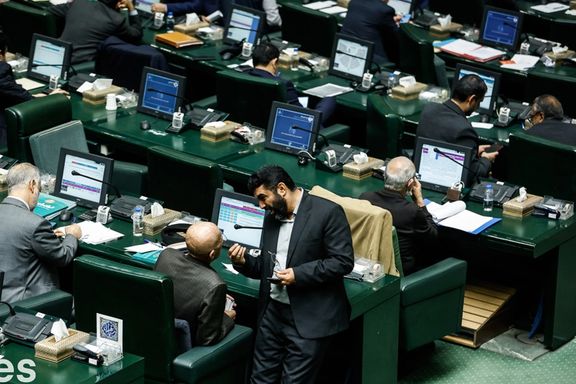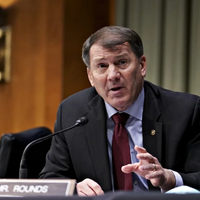Ultraconservatives have tabled a motion in parliament (Majles) to impeach Economy Minister Abdolnasser Hemmati for failing to control the fall of the Iranian currency. However, Mohammad Taqi Naqdali, an MP who is a member of the ultraconservative Paydari Party emphasized that "Staunch supporters of the government are among those who have called for Hemmati's impeachment."
Three other prominent ultraconservative lawmakers have also backed Naqdali's claim in interviews with Khabar Online website in Tehran.
One of these lawmakers, Mojtaba Yousefi, who is a member of the parliament’s presidium, said: "A cabinet minister who refuses to pay attention to the people's priorities should be impeached. The Majles will not ignore its supervisory role and will question the minister on behalf of the people."
Iran’s currency has plunged by approximately 30 percent since early September, following significant Israeli strikes against Hezbollah, Tehran’s main regional proxy, and the collapse of Bashar Assad’s rule in Syria. This decline is likely to exacerbate the country’s already soaring inflation and deepen the poverty crisis, which has been worsened by years of US sanctions and domestic mismanagement.
Hardline ultraconservatives, however, avoid criticizing the Revolutionary Guard or Supreme Leader Ali Khamenei for regional and economic setbacks. Instead, they focus their attacks on the government, which has limited authority over military and major policy decisions.
Political activists backing President Masoud Pezeshkian’s administration have pointed out that Khamenei has explicitly voiced opposition to early impeachments. They cited his remarks from June 2023: "Why should a cabinet minister be impeached just three or four months after receiving a vote of confidence from the Majles? Why an impeachment? What could the minister have possibly done in such a short time to warrant this?"
In at least one instance, some ultraconservative MPs demonstrated that they do not always follow Khamenei's orders and advice. This occurred shortly after the current Majles convened in 2024, when Khamenei urged members to refrain from factional infighting over the parliament's leadership. Despite this, outspoken ultraconservative MP Hamid Rasaei and members of the Paydari faction persisted in their smear campaign against Mohammad Bagher Ghalibaf. Ultimately, Ghalibaf secured the Speakership, thanks to an alliance with other conservative factions in parliament.
In recent days, Ghalibaf has spoken out against the impeachment push, describing it as "a factionally motivated act" rather than a sound or prudent decision. It remains unclear whether this reflects Ghalibaf's personal stance or if he is acting as a conduit for Khamenei's message to the parliament.
Critics of the ultraconservatives on social media accused them of overusing the parliament's supervisory powers and questioned whether they would heed Khamenei's advice or defy it.
Ghalibaf criticized the ultraconservatives' actions as a political spectacle amid the country's currency crisis, stating in the Majles, "Unfortunately, some MPs exploit the people's demands to advance their factional interests." He warned that "if the impeachment motion proceeds, there will be no one in the government to manage exchange rates."
One of the advocates of impeachment said this was "the Speaker's personal opinion and the MPs are adamant to pursue the impeachment motion." Another lawmaker added that "It is not only the currency crisis that motivated the impeachment. There are also problems about fuel and inflation rate."
Another parliamentarian, Javad Hosseini Kia said: "There is a major problem with exchange rates, which is caused by the inefficiency of the Ministry of Economy and the Central bank. If the officials in charge cannot do their jobs they should step down."
According to Khabar Online, while quoting Khamenei as saying that "The Majles should help the government," Yousefi said: "We helped the government by giving our vote of confidence to all of cabinet ministers and passing their budget bill. Yes, we should help the government but at what price? Should not we use our supervisory tools despite the currency crisis and unemployment? We are using our supervisory role on behalf of the people."









